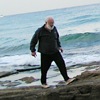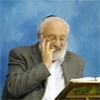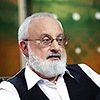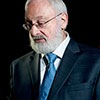Where Is The Turbulent Ocean Of The Future Taking Us?
 A question I received: What will happen in human society when people reach the minimal level of existence in spirituality, which is bestowal for the sake of bestowal? How will they begin to think about and feel each other? What will change in such a world?
A question I received: What will happen in human society when people reach the minimal level of existence in spirituality, which is bestowal for the sake of bestowal? How will they begin to think about and feel each other? What will change in such a world?
My Answer: I believe that we can already see changes in the world now. The world crisis is beginning to force us to reject the overindulgence and it shows us that it is much more comfortable to be content with a middle class level of existence. The craving for excessive overindulgence is fading, as evidenced in young people over the past few dozen years.
Humanity is beginning to reveal more qualitative needs. Instead of gold they need honor, instead of honor – power, instead of power – the meaning of life, the realization of the fact that we can find satisfaction only in our connections with other human beings. Overindulgence doesn’t give us this satisfaction.
Life itself teaches people, and economic power will bring nothing but disappointment. People are seeing that all of this comes and goes. After all, mankind’s development throughout history is akin to swimming in some turbulent ocean of the future, where huge waves thrust some countries upward while throwing others into an abyss. Everything changes so quickly, countries rise and fall, similar to how for example, we are now witnessing the decline of America and the rise of China.
People see that power comes and goes and great civilizations collapse – Babylon was replaced by Persia, then by Greece, then by Rome. On its own this does not teach anyone anything, since people do not learn from the past. However, the desires (Reshimot) are renewed, and they develop us so that we come to demand new qualitative fulfillment and perceive new needs.

 When a Kabbalist speaks, he creates worlds, since speech is the outer expression of our inner attainment. This explains why our level as human beings is called the “speaking” level. As correction happens at this level of desire we begin to attain properties of the Creator. This kind of attainment cannot happen at the “inanimate,” “vegetative” and “animate” levels of desire in the spiritual world.
When a Kabbalist speaks, he creates worlds, since speech is the outer expression of our inner attainment. This explains why our level as human beings is called the “speaking” level. As correction happens at this level of desire we begin to attain properties of the Creator. This kind of attainment cannot happen at the “inanimate,” “vegetative” and “animate” levels of desire in the spiritual world.


 On November 17, I held another of our public lectures at the Bnei Baruch Kabbalah Education Center. The topic of this lecture was Baal HaSulam’s article, “
On November 17, I held another of our public lectures at the Bnei Baruch Kabbalah Education Center. The topic of this lecture was Baal HaSulam’s article, “






